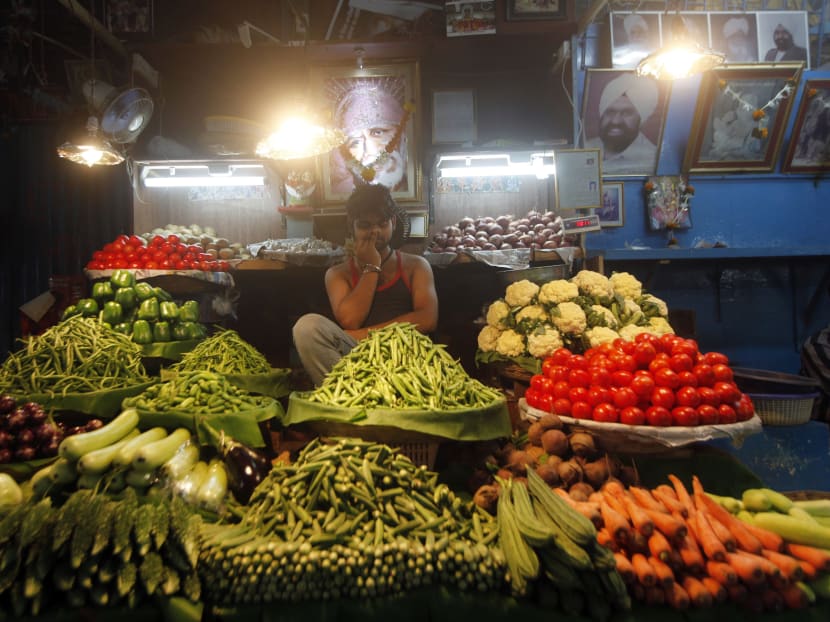India passes S$25.5 billion law to subsidise grains
NEW DELHI — India plans to subsidise wheat, rice and cereals for some 800 million people under a US$20 billion (S$25.5 billion) scheme to cut malnutrition and ease poverty.

A vegetable vendor sits at his shop in Mumbai, India, Sept 3, 2013. Photo: AP
NEW DELHI — India plans to subsidise wheat, rice and cereals for some 800 million people under a US$20 billion (S$25.5 billion) scheme to cut malnutrition and ease poverty.
The Food Security Bill, sent this week by India’s parliament to the president for approval, guarantees citizens a legal right to food.
India has some of the world’s worst poverty and malnutrition with two-thirds of its 1.2 billion people poor and half of the country’s children malnourished.
Food Minister KV Thomas called the bill a first step toward improving food distribution in a country where poor transportation and lack of refrigeration mean up to 40 per cent of all grains and produce rot before they reach the market.
The new scheme allows those who qualify to buy 5 kilograms of rice a month for 3 rupees (S$0.06) a kilogram. Wheat will cost 2 rupees a kilogram, and for cereals the cost is 1 rupee.
Pregnant women and new mothers will also receive at least 6,000 rupees in aid. In a deviation from India’s patriarchal traditions, the scheme designates the eldest woman in each home as the head of the household, hoping to prevent rations from ending up on the black market.
The poorest families among the poor, already receiving subsidised rates for up to 35 kilograms of grains a month, will continue to receive those benefits.
The federal government has said it would cover most of the program’s annual US$20 billion cost but it will be up to India’s states to decide who will qualify.
The legislation, long promised by the governing Congress Party, was passed by India’s upper house of parliament yesterday (Sept 2), after being passed last week in the lower house.
Opposition parliamentarians criticised the bill as not ambitious enough to improve nutrition, and accused the government of courting votes in next year’s elections by repackaging smaller food schemes already in effect.
India has offered free midday school meals since the 1960s in an effort to persuade poor parents to send their kids to school. That program now reaches some 120 million children. The country gives a similar promise of a hot, cooked meal to pregnant women and new mothers — a promise the new bill extends to children between 6 and 14 years old. AP





